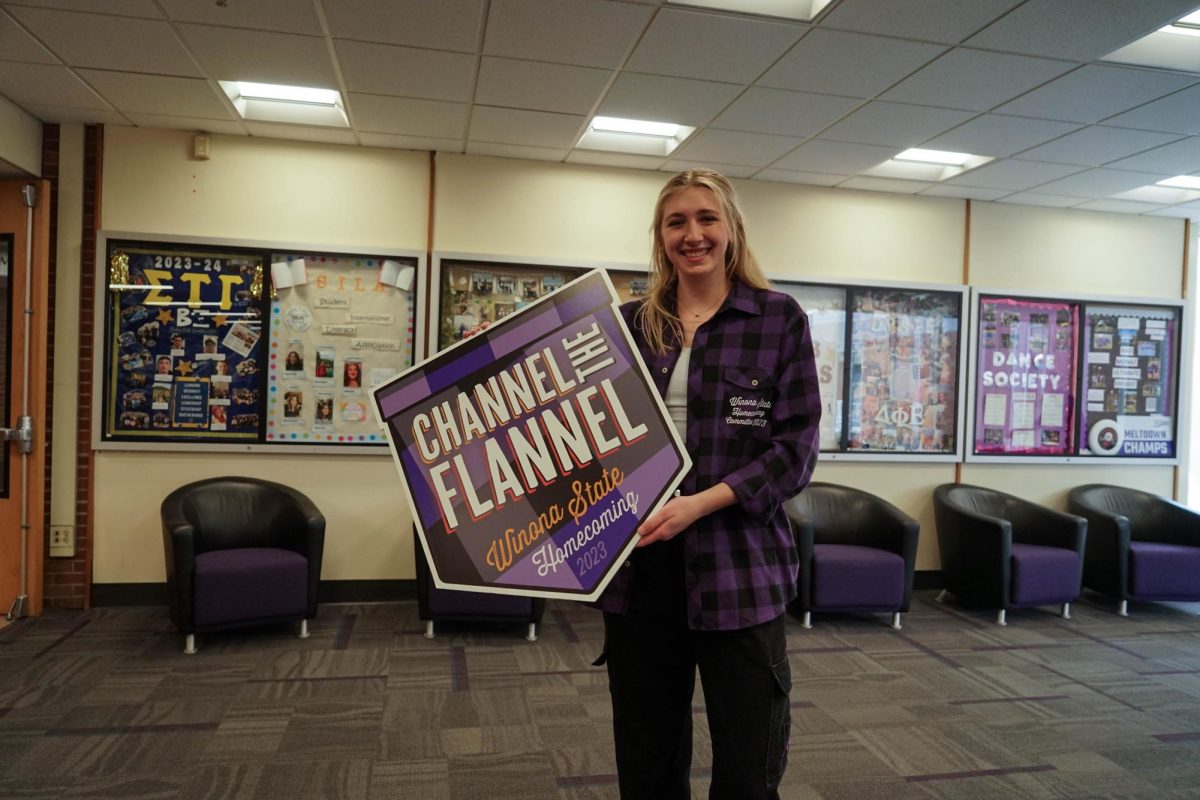Brent Quam/Winonan
A noted educator acknowledged what seems to be nationwide issues in educating black males in urban areas, but pointing out these problems are still regularly overstated and not the result of any inherent issue with the boys themselves.
Robert W. Simmons III, Assistant Professor of Urban Education and African/African-American Studies at Loyola University, Maryland, led Winona State University students and staff in an education workshop to note these issues.
The workshop, held April 16, in Kryzsko Commons, focused on Simmons’s findings and experience with the specific challenges of educating young African American males.
“There are more black men between the ages of 18 and 24 in college than in prison,” Simmons said. “When you say there are more black men in prison than in college, those are different statements.”
Simmons is a prolific editor, author and contributor to numerous pedagogical journals and books, including Learning to Talk About Race: Alleviating the Fear. Simmons has also been nominated twice as the Walt Disney National Teacher of the Year and once for the Whitney and Elizabeth Macmillan Foundation Outstanding Educator Award.
Simmons began his career in education as a middle school science teacher in his hometown of Detroit, Michigan.
Simmons said the problem rests mainly on the educational system in the United States itself, citing his own experience teaching in Baltimore as one example.
“In Baltimore, if you’re a student and you’re late to class by more than five minutes, you’re considered truant,” Simmons said. “The school doors would be locked five minutes after school began every morning and police would park near the entrances, waiting to catch these kids.”
Simmons said another main reason urban black males struggle in school is because they endure too many stressful life events and do not often enough have access to services that will help them cope with these added difficulties, such as gang violence and troubles at home.
One in three urban youth of any race display symptoms of post-traumatic stress.
“They can suffer from depression, attention problems, intrusive thoughts about traumatic events and even flashbacks, all while trying to get through class,” Simmons said.
Before offering workshop participants his own findings on how best to overcome these obstacles, Simmons asked those present what their experience was, if any, with black males in education.
“Recognizing and acknowledging black male students’ authenticity is very important,” Carrie Brouse, Winona State’s Dean for the Bush Project Administration, said.
“The teachers who worked best with black males had relationships outside the class with their students,” Winona State student Ben Strand said.
Acknowledging this comment, Simmons said, “Right now, we want teachers who care. Teachers tell me all the time, ‘They’re so disrespectful.’ Then the teacher responds in kind. That doesn’t work.” Simmons defined what he meant exactly by ‘care.’
Simmons said teachers must be demanding but facilitative, supportive and accessible, both personally and professionally, and above all else, be both patient and persistent in their efforts.
“When a student would say to me after I assigned a paper, ‘I don’t have a computer,’ I’d set aside time for a group to go to the public library,” Simmons said. “’But I don’t have a library card,’ the kid would say. And I would hand him the application.”
Alexander Hines, Winona State cultural and diversity director, thanked Simmons for his visit.
“This comes from us down in the trenches, doing this stuff,” Hines told Simmons as the workshop drew to a close, “no one is more committed to African-American education. I’d like to thank you.”
Students can follow Simmons on Twitter or contact him via email at [email protected].
Contact Brent at [email protected]




























































